| History of Cinema | |
|---|---|
| Directed by | Rouzbeh Rashidi |
| Written by | Rouzbeh Rashidi |
| Produced by | Rouzbeh Rashidi |
| Starring | Rouzbeh Rashidi |
Release date |
|
Running time | 33 minutes |
| Countries | Iran Ireland |
| Language | English |
History of Cinema is a 2008 Iranian Irish experimental short film directed by Rouzbeh Rashidi. The film is an experimental derivation from the concept of cinema, expressing this perception through images and sound. The 33 minute film reflects the notion of seventh art with complete personal and free interpretation.
Rashidi shot the film with webcam and mobile phone cameras between 2002 and 2004. Each segment of the film was shot and edited separately, and compiled together in 2008 for the final version. Rashidi used archival footage from the early films of cinema and integrated them with the rest of material in order to create the sense of history. The film is heavily saturated, grainy and full of distorted images. The soundscape designed by Rashidi was added into the film with chosen music.
History of Cinema premiered at the Global Cinema Festival 2009 in India. [1]
Lucca Film Festival 2010 - (An)Other Irish Cinema Category [2]

Man with a Movie Camera is an experimental 1929 Soviet silent documentary film, directed by Dziga Vertov, filmed by his brother Mikhail Kaufman, and edited by Vertov's wife Yelizaveta Svilova. Kaufman also appears as the eponymous Man of the film.
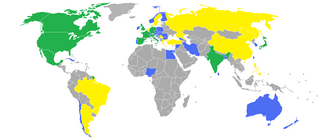
World cinema is a term in film theory that refers to films made outside of the American motion picture industry, particularly those in opposition to the aesthetics and values of commercial American cinema. The Third Cinema of Latin America and various national cinemas are commonly identified as part of world cinema. The term has been criticized for Americentrism and for ignoring the diversity of different cinematic traditions around the world.
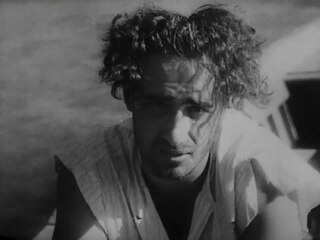
Experimental film or avant-garde cinema is a mode of filmmaking that rigorously re-evaluates cinematic conventions and explores non-narrative forms or alternatives to traditional narratives or methods of working. Many experimental films, particularly early ones, relate to arts in other disciplines: painting, dance, literature and poetry, or arise from research and development of new technical resources.

Jia Zhangke is a Chinese-language film and television director, screenwriter, producer, actor and writer. He is the dean of the Shanxi Film Academy of Shanxi Media College and the dean of the Vancouver Film School of Shanghai University. He graduated from the Literature Department of Beijing Film Academy. He is generally regarded as a leading figure of the "Sixth Generation" movement of Chinese cinema, a group that also includes such figures as Wang Xiaoshuai, Lou Ye, Wang Quan'an and Zhang Yuan.

Barbara Jean Hammer was an American feminist film director, producer, writer, and cinematographer. She is known for being one of the pioneers of the lesbian film genre, and her career spanned over 50 years. Hammer is known for having created experimental films dealing with women's issues such as gender roles, lesbian relationships, coping with aging, and family life. She resided in New York City and Kerhonkson, New York, and taught each summer at the European Graduate School.

Remodernist film developed in the United States and the United Kingdom in the early 21st century with ideas related to those of the international art movement Stuckism and its manifesto, Remodernism. Key figures are Jesse Richards and Peter Rinaldi.

The Irish film industry has grown somewhat in recent years thanks partly to the promotion of the sector by Fís Éireann/Screen Ireland and the introduction of heavy tax breaks. According to the Irish Audiovisual Content Production Sector Review carried out by the Irish Film Board and PricewaterhouseCoopers in 2008 this sector, has gone from 1,000 people employed six or seven years ago, to well over 6,000 people in that sector now and is valued at over €557.3 million and represents 0.3% of GDP. Most films are produced in English as Ireland is largely Anglophone, though some productions are made in Irish either wholly or partially.
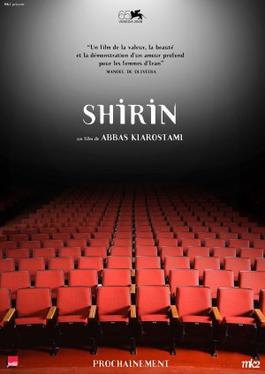
Shirin is a 2008 Iranian drama film directed by Abbas Kiarostami. The film is considered by some critics as a notable twist in the artistic career of Kiarostami.
The Lollipop Generation is a 2008 Canadian underground experimental film written, produced, and directed by G. B. Jones, whose previous films include The Troublemakers and The Yo-Yo Gang. It premiered as the Gala Feature presentation of the Images Festival in Toronto on April 3, 2008.
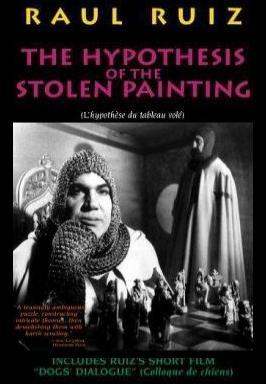
The Hypothesis of the Stolen Painting is a 1978 French surrealist experimental mystery film directed by Chilean filmmaker Raúl Ruiz and shot by cinematographer Sacha Vierny. The film was inspired by the themes of French writer Pierre Klossowski and makes references to many of Klossowski's works including The Revocation of the Edict of Nantes, The Baphomet and “La Judith de Frédérique Tonnerre.” Ruiz was originally commissioned by a French TV network to make an arts documentary on Klossowski, but what emerged is this film, a parody of the art documentary. The film was featured in film festivals after its release such as the London Film Festival in 1979. Hypothesis of the Stolen Painting has been noted as one of Ruiz's masterpieces that challenges the boundaries of cinema and film theory.

Rouzbeh Rashidi is an Iranian-Irish avant-garde filmmaker and founder of Experimental Film Society. Since 2000, Rashidi produced experimental feature films and numerous volumes of instalments for the Homo Sapiens Project. His films have been associated with the Remodernist Film Movement.

Only Human is a 2010 Irish experimental film directed by Rouzbeh Rashidi that tells the visual story of five couples. A tale of people unfolds under the night sky. These doomed couples and lost individuals begin journeys and attempt to find resolution in their lives. As the stories progress, they become neatly woven into a minimalistic portrayal of modern life.
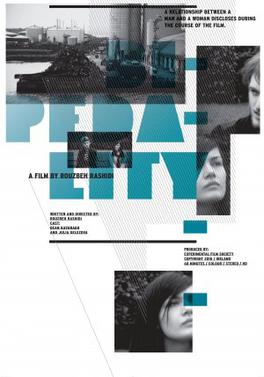
Bipedality is a 2010 Irish Experimental film directed by Rouzbeh Rashidi that tells the visual story of a relationship between a man and a woman which discloses during the course of the film.
Strand is a 2009 Iranian experimental film directed by Rouzbeh Rashidi that tells the visual bond between nostalgia and physical reality, the liquid phase produced by the condensation of Stream of consciousness will evolve through the film and manifests itself using images and sounds. Strand is a personal journey in memory and time using human models, landscapes and cityscapes of Iran in order to explore the emotion hidden in past and future.
Maximilian Le Cain is an Irish filmmaker, cinephile and film critic living in Cork City, Ireland. His always-personal, formally experimental work has included narrative, documentary, and video art installation, although it mostly wanders restlessly somewhere between those categories. Le Cain has made more than sixty short and medium-length films and videos over the past decade. He has written for many magazines such as Senses of Cinema, Film Ireland and Rouge and in several books, including The Cinema of Roman Polanski: Dark Spaces of the World. He is also the editor of the online magazine devoted to experimental cinema called Experimental Conversations.
Zoetrope is a 2011 Irish experimental film directed by Rouzbeh Rashidi that tells the visual report of a family. Zoetrope deals with the quality of being expressive, explores the locations and reveals a life in a small house and its surrounding. The film slowly evolves and shows the history of nothingness of the characters who are in Zoetrope.
Slow cinema is a genre of art cinema characterised by a style that is minimalist, observational, and with little or no narrative, and which typically emphasizes long takes. It is sometimes called "contemplative cinema".

Armel Hostiou is a French filmmaker.

Hamid Naficy is an Iranian-born American filmmaker, writer, scholar, and educator. He is the Hamad Bin Khalifa Al-Thani Professor in Communication at Northwestern University in the department of Radio/Film/Television, an affiliate faculty member in the Department of Art History, and a core member of the Middle East and North African Studies Program.

Experimental Film Society is an Ireland-based film production, distribution and video on demand company specialising in experimental film. It has produced over 50 feature films and 500 shorts, organised more than 150 screenings globally and has a film festival called Luminous Void: Experimental Film Festival.